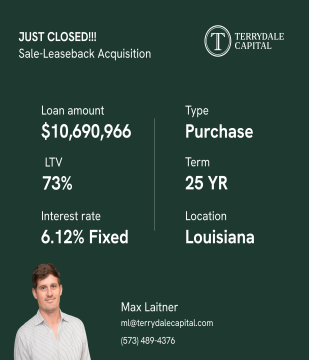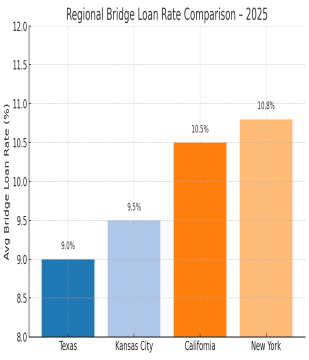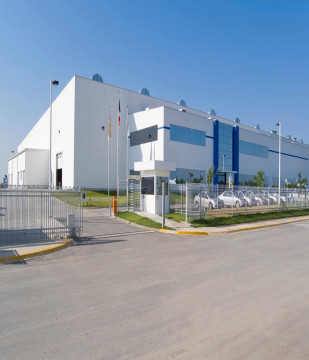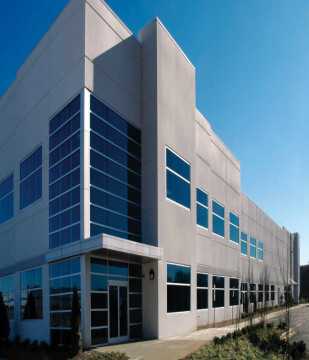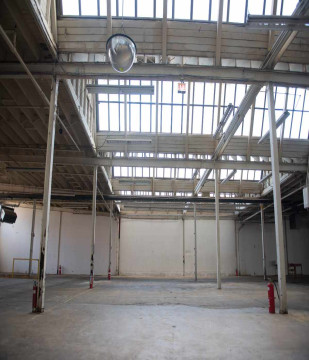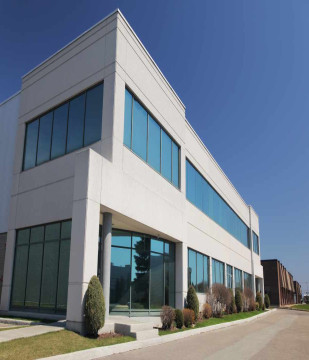Steps of the Commercial Real Estate Closing Process

Terrydale Capital
Jun 16, 2023 13 Min read
A commercial real estate closing is a complex, multi-step process that can take months in totality. One of the reasons why a cre transaction might take longer is because one of the parties has overlooked a crucial aspect of the transaction. Taking a laid-back approach to such an intricate process could potentially end in disaster.
With that in mind, we've put together a checklist of things investors looking to finance commercial real estate should keep in mind when closing on a commercial real estate property. Knowing the steps of the commercial real estate closing process can ensure you do everything properly, protecting yourself and your business.
Step 1: Open Title Insurance with a Title Company
Research shows that 50 percent of property buyers select their own title company. Getting title insurance for commercial property from a title company is more crucial than getting title insurance for a residential property. Why? The main reason is that commercial real estate transactions usually involve substantial amounts of money and more complicated titles.
So, what is a title policy? A title policy is an insurance policy that protects both property buyers and mortgage lenders from financial losses or damages caused by a bad title. Most title insurance policies cover all the common claims filed against a property title, including, but not limited to:
- Unknown title defects that prevent the property buyer from having clear ownership of the commercial property. This can include forged or incorrectly indexed deeds.
- Inadequate or invalid legal descriptions along with inaccuracies in public records and in official responses relating to title searches.
- Unrecorded or undisclosed liens, such as unpaid utilities, mortgages, taxes, and work orders that were due and payable prior to the date of the title policy.
- Encroachment issues, such as inconsistent boundary descriptions.
- Other defects that make the property unmarketable and affect the property buyer's ability to get a mortgage, sell, lease, or rent out the commercial property.
It's good to note that title insurance for commercial real estate does not cover issues unrelated to property title, such as damages caused by natural events like flooding, earthquakes, etc. Also, it does not cover events like theft, fire, and normal wear and tear. To get protection against such risks, commercial property buyers should get commercial property insurance.
What do you need from the title to close a commercial loan?
For a title to close a commercial loan, commercial real estate lenders usually require three things. They include:
- Title Survey
A title survey is a two-dimensional map consisting of crucial information about a property. A typical title survey includes location, acreage/size, names of subdivisions, property dimensions, orientation, etc.
Mortgage lenders often request a title survey to verify that the property title's legal description matches the property's true status. When scrutinizing the title survey, mortgage lenders can identify inconsistencies between previous property descriptions and new improvements that have been made.
- Clear Title Commitment
A title commitment is the title insurer's report that gives the requesting party (typically a mortgage lender or property buyer) the underwriter's commitment to issue a title policy based on the requirements contained therein.
The information in the title commitment can enable the property buyer to know about any encumbrances to the title that exist and what requirements exist in order to close and insure (In Texas, these are located in Schedule C. Outside of Texas, these are located in Schedule B-I). In addition to "exceptions", the title commitment may also contain a list of "exemptions" that the title insurance policy won't cover.
Since opening title insurance is a critical first step, it's important that you choose a reputable title company like our preferred partner, Aurum Title to help you through these key transactions.
Step 2: Engage Property Insurance
As the name suggests, property insurance protects against most risks to property, including theft, fire, and weather damage. It provides coverage not just for the building itself, but also for the building equipment. Most mortgage lenders require the commercial property to be fully insured for its total replacement cost.
So, why do lenders require property insurance? Lenders require property insurance for commercial real estate to ensure that the property they have an investment in has adequate coverage against catastrophic damage. Mortgage lenders also want to ensure that commercial property owners are financially capable of paying the mortgage loan in the event that the property is destroyed.
For this crucial step, you should choose a reliable property insurance company like our preferred partner, Highland Park Insurance to get a property insurance policy that covers 100% of your property's replacement cost.
Step 3: Obtain Third-Party Reports
Commercial property buyers seek due diligence services to verify the condition and value of the commercial property so as to mitigate their investment risk. Similarly, mortgage lenders typically rely on third-party reports to verify that commercial property is in a good condition. This also helps in discovering any necessary spending, both upfront and ongoing throughout the loan term.
There are three main third-party reports that lenders require. They include:
- Appraisal
A real estate appraisal is an unbiased assessment of the estimated market value of a property based on several factors. For commercial property buyers, an appraisal helps them to determine whether the property's contract price is suitable given its location, condition, and features. For lenders, it assures them that they are not loaning the borrower more money than the property is worth.
- Environmental Report
An environmental report is a thorough assessment of the commercial property to identify any dangerous contaminants. It is usually completed in one or two phases, and potential commercial property buyers assume the cost of the investigation. Lenders require environmental assessments to limit exposure to potential environmental liability associated with commercial property.
- Property Condition Report
A property condition report also called a property condition assessment, is an estimation of the potential expenses the commercial property owner can expect to pay to maintain the property in the short- and long-term. It enables the lenders to understand the condition of the property and its maintenance or how improvements will impact the property's financial performance.
Step 4: Standard Due Diligence Items
Due diligence is a critical stage in any commercial real estate transaction. If you aspire to apply for a loan to buy commercial property, you don't want any stone uncovered.
As such, you should take your time to review all documents. Look for all possible red flags with the commercial property, title, tenant relationships, and many other considerations. The standard due diligence items include:
- What lenders will require, as outlined in the above steps.
- Borrower information, including tax returns, personal financial statements, liquidity, verification, etc.
- Property information, such as property financials, rent roll, etc.
How Long Does It Take to Close a Commercial Real Estate Loan?
The duration taken for a commercial real estate closing process varies from lender to lender. However, most conventional loans generally take 45-65 business days to process. As for hard money loans, they generally take 5-10 days.
Get Approved for a Commercial Real Estate Loan
There are many excellent lender options for commercial property buyers. However, it's vital to understand that not all lenders are created equal. You'll want to choose a lender who's familiar with the real estate market you're considering investing in.
Are you ready for the most competitive financing structure in the market for your commercial real estate deal? Contact Terrydale Capital. We are a reputable commercial real estate financial consultancy firm that knows how to problem-solve on behalf of our clients.
Contact us today, mention the code "Closing" and receive a free appraisal cost waiver with Terrydale Capital Financing.
Partner With Terrydale Capital for Your Debt Financing Needs
When it comes to debt financing, understanding the right timing, process, and options is crucial. At Terrydale Capital, we provide a comprehensive range of commercial loan solutions tailored to meet your business's unique needs.













